BioProcess International Europe DIGITAL WEEK
DAY 1 – NOVEMBER 29, 2021
Bring Product Quality Assessment into Early Clone Selection with Opto™ Cell Line Development
11am CET / 10am GMT / 5am EDT
CHO cell line selection represents a painful bottleneck in biotherapeutic development, particularly for complex molecules like bispecifics. The Opto™ CLD workflow on the Beacon® system accelerates early CLD by integrating high throughput cell sorting, cloning, culture, productivity, growth, and product quality assays into a single, 5-day automated process. We will introduce new capabilities including on-chip detection of product aggregates and contaminating byproducts that pinpoint the best clones early on – saving valuable development time while de-risking the path to IND.
Speaker:

Renee Tobias
Director, CLD Product Management, Marketing
Berkeley Lights, Inc.
View More Details +
Overcoming the challenges in antibody manufacture using mechanistic modelling and machine learning
12pm CET / 11am GMT / 6am EDT
This talk will present advances in the use of mathematical techniques for reducing process development timelines while also increasing product quality with respect to protein glycosylation. It will also showcase how machine learning can be harnessed to guide cell line engineering for targeted glycosylation profiles.
Speaker:
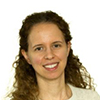
Cleo Kontoravdi
Professor of Biological Systems Engineering
Imperial College London
View More Details +
Increase of clone titer by lowering strength of selection marker: an improvement of the CHOZN® CHO K1 cell line development platform
1pm CET / 12pm GMT / 7am EDT
Cell Line Development (CLD) is a decisive step in a recombinant therapeutic molecule development, as it sets the path for the future success of the molecule. When time is of the essence, identification of high-producing cells lines must be carried out with a robust and efficient routine. The CHOZN® CHO K1 cell line is one of the CLD platforms developed by Merck’s BioReliance® End-to-End Solutions team. Selection of top-producing clones is based on an antibiotic resistance. Recent efforts have been orientated towards vector improvement, mainly focusing on promoters for expression of selective pressure resistance. To increase clone selection stringency, weakened promoters have been identified. Several promoters led to a 1.5-fold increase of maximum titer and a 1.3-fold increase of mean specific productivity over the clone generation, with best clones expressing more than 3 g/L of a standard monoclonal antibody. Lowering promoter strength opens the door to more efficient CLD processes, fostering identification of high-producing clones and reducing timelines.
Speakers:
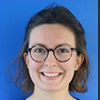
Lucie Grindes
Cell line development PhD student
BioReliance® End-to-End Solutions
Merck
View More Details +
DAY 2 – NOVEMBER 30, 2021
Evolving Analytics in the Upstream Lab by using the power of LC-MS
Analytics for Nutrient Monitoring in Spent Cell Culture Media
Power of Ambr ® 15 and BioAccord; CQA Feedback in Process Control
10am CET / 9am GMT / 4am EDT
What if generating product quality data was no longer a taxing analytical burden reserved for specific and sparing samples? Product quality data on critical quality attributes (CQA’s) hold immense importance in biopharmaceutical development and production. Traditional quality analysis entails time consuming purification and testing which encourages an intentional reduction in the number product quality samples sent for analysis. The exhaustive nature of this testing often delays quality data retrieval weeks from time of sample. The first part of this presentation will reveal how combining the power of Sartorius Ambr® with Waters BioAccord LC-MS can allow for rapid sub-24hr turnaround times of mAb product quality data. We will take a deep dive into our multiple case studies that examine the expediency of this combination. The day-to-day change in glycosylation and impact of process parameter variations can now be clearly visualized in near-real time. Data generation on this time scale also allows for the introduction of close-coupled quality feedback. Permitting quality attributes to drive process parameters offers development teams the power to target and attain precise quality attribute profiles.
In addition to product attributes, the BioAccord LC-MS System can be applied to the analysis of chemical constituents and metabolic found in cell culture media during clone selection and process development. In the second part of this presentation, we will discuss the benefits of tracking not only targeted components (such as common amino acids, vitamins, acids), but also metabolites and untargeted components and changes in the media. Statistical analysis tools to provide insight on key metabolic changes occurring in process development or clone selection studies will also be discussed.
Speaker:
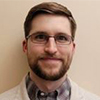
Charles Prochaska, M.S.
R&D Engineer-USP Applications
Sartorius
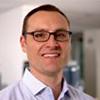
Mark Wrona, M.S..
Principal Scientist, Scientific Operations
Waters Corporation
View More Details +
Process intensification: do you have all the data you need when you need it?
11am CET / 10am GMT / 5am EDT
The need for process intensification and implementation of Bioprocess 4.0 requires extensive real time data acquisition and process modelling. Real time measurements are currently available for many key parameters through inline and online sensors to better evaluate CPP and CQA. However real time monitoring of the extracellular environments to assess cell metabolism and create predictive models still suffers from lack of relevant data. At line MS-based technologies presented here provide key cellular metabolic and protein quality data in real time to support process intensification and modelling.
Speaker:
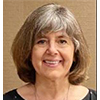
Graziella Piras, Ph.D
Bioprocessing Segment Marketing Director
908 Devices
View More Details +
Accelerated Bioprocess Development using Digital-Twin-assisted Hybrid Modeling Approach
12pm CET / 11am GMT / 6am EDT
The cost and required time to conduct reliable process understanding and characterization limits the bioprocess understanding since it early days. The talk highlights several up and downstream showcases in which the combination of hybrid modeling and advanced design space screening methods increased process understanding while simultaneously significantly reduced the required experiments by up to 70%. The chosen model structure also enabled usage of those models during up-scaling and easy implementation for process monitoring and control.
Speaker:

Mark Duerkop
CEO
Novasign
View More Details +
Managing the Journey from Process Development to Insight
1pm CET / 12pm GMT / 7am EDT
With the increasing use of high-throughput and process intensification techniques in cell culture development there’s no shortage of data, but turning that data into actionable insights is a challenge. Large quantities of data are held in silos created by reliance on standalone equipment and instruments. The first step in unlocking the power of advanced analytics to maximize cell culture productivity is the generation of a robust, well-maintained, and interoperable data backbone. This presentation will show how a cloud-based platform with an embedded integration layer simplifies the curation of rich, integrated, contextualised data that supports the development continuum and creates a more efficient path to process understanding.
- How to build the right foundation to ensure confidence in the accuracy and availability of your data
- How to get actionable insights from your HTPD data to maximize cell culture productivity
- How out-of-the-box workflows and integrations can curate a process data backbone that speeds time to insight
Speaker:

Henry Charlton
Commercial Director, Biologics
IDBS
View More Details +
DAY 3 –December 1, 2021
From Process Development to Viral Clearance Filtration Studies: What Could Go Wrong?
10am CET / 9am GMT / 4am EDT
When a developed virus filtration process is validated by viral clearance testing, the addition of a virus spike for just this purpose can lead to disappointing results. Not achieving processing targets like throughput or viral clearance targets such as log reduction can cause development delay and cost increases. Problems can be produced by the virus spike itself, product stability, clearance testing methods, and complications due to prefilter implementation. Process development and viral clearance laboratories have to communicate in significant detail to ensure successful clearance testing that suitably mimics the final production process. We give some guidance and examples of what can be done to mitigate the occurrence of unsatisfactory results and get to the maximum achievable outcome during a viral clearance study for a batch process with prefiltration. We also take a brief look at how the findings and recommendations could be translated to a continuous process setting.
Speaker:

Nigel Jackson
Principal Engineer
Pall
View More Details +
Trends in Downstream Process Development
11am CET / 10am GMT / 5am EDT
Join us for an in-depth, interactive discussion on “Trends in Downstream Process Development” with perspectives from key opinion leaders on overcoming the mounting challenges and bottlenecks arising from portfolios with increasingly complex and complicated modalities. Our panel of experts will focus on recent trends in bioprocessing and the impact they are having on downstream processes and explore solutions utilizing novel tools, technologies and strategies through their own experiences.
Speakers:

Dr. Hani El-Sabbahy
Advanced Application Engineering Specialist
3M

Alois Jungbauer
Head of Institute of Bioprocess Science and Engineering
University of Natural Resources and Life Sciences, Vienna
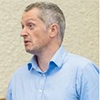
Dan Bracewell
Professor of Bioprocess Analysis
Department of Biochemical Engineering, UCL
View More Details +
The GMP of AAV: purification for clinical production
12pm CET / 11am GMT / 6am EDT
What should you consider when developing a purification process for adeno-associated viruses (AAV)? We’ll share some insights on that topic. And we’ll discuss ways to overcome the key challenges in bringing these processes to clinical production. Last, we’ll explore what’s on the horizon for systems and other purification techniques designed for purifying AAV according to good manufacturing practices (GMP) requirements.
Speaker:
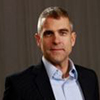
Fredrik Lundström
Senior product manager
Cytiva
View More Details +
mAb Purification: A Mixed-Mode Approach- Alternative to a Three-Step Purification Process
1pm CET / 12pm GMT / 7am EDT
Monoclonal antibody (mAb) purification methods often involve the use of resin-based chromatography in a series of steps. A typical mAb purification process involves a multistep workflow consisting of two or more columns for capture, intermediate, and polish purification to isolate the target molecule. Resins selected for each of these steps solve specific challenges that exist at that phase of purification for the mAb. Purification strategies with combined mechanisms of action can allow for fewer chromatography steps to save processing time, thereby making enhancements to overall process economics and efficiency. We compare a three-step mAb purification using Nuvia Ion Exchange Resins post Protein A capture, to a two-step purification workflow with a Protein A capture step, followed by a mixed-mode chromatography step using Nuvia aPrime 4A, a hydrophobic anion exchange resin. We will present an additional two-step purification approach using Protein A resin followed by a calcium affinity cation exchange media, CHT Ceramic Hydroxyapatite XT. The results of both studies will show the ability to achieve high purity product with one fewer unit operation.
Speakers:

William H. Rushton, MS
Process Chromatography Support Scientist
Bio-Rad Laboratories

Daniel M. Yoshikawa, PhD
Global Product Manager, Process Chromatography
Bio-Rad Laboratories
View More Details +
Understanding monoclonal antibody aggregate behaviour impacting chromatographic process efficiency
2pm CET / 1pm GMT / 8am EDT
As titer from upstream increases, capacity of the resins is more of important factor to drive process efficiency and impurities like aggregate reduces the capacity of monomer significantly. In this presentation, we will show the impact of aggregate on the capacity and efficiency of chromatography steps such as protein A, ion-exchange or HIC (hydrophobic interaction) columns along with use of additive and selective resins to increase product purity and process efficiency.
Speakers:
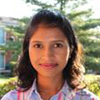
Pawanthi Buwaneka
Research Scientist - Bioprocessing Application
Avantor

Calvin Cheah
Innovation Scientist
Avantor
View More Details +
DAY 4 –December 2, 2021
The Role of Virus Filtration in Achieving Pathogen Safety of Cell and gene Therapy Products
10am CET / 9am GMT / 4am EDT
Viral safety and risks for cell and gene therapy: how to improve pathogen safety of cell and gene therapy products
Speaker:
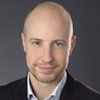
Sebastian B. Teitz, Ph.D.
Scientific Coordinator, Asahi Kasei Bioprocess Europe
Cologne Technical Center
View More Details +
Economic and Accurate Viral Clearance Prediction During Downstream Process Development
11am CET / 10am GMT / 5am EDT
The attendee of this webcast will learn how non-infectious virus particles can be used in a BSL-1 setting to accurately predict the removal of virus from their downstream process steps. Principles and best practices will be discussed as well as the review of data generated from a diverse range of purification steps and biopharmaceutical feedstreams.
Speakers:
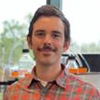
David Cetlin
Sr. Director, MockV Products
Cygnus Technologies
View More Details +
Preventing Viral Contamination in Emerging Novel Cell & Gene Therapies
12pm CET / 11am GMT / 6am EDT
Practical steps to reduce the virus contamination risk of ATMPs are a significant challenge. Attendees will learn some of the key challenges with regards to viral safety that cell and gene therapies face and learn how the lessons from the CAACB Virus Contamination in Biomanufacturing Study can be leveraged to ensure the safety of these emerging products.
Speaker:

Paul W. Barone, Ph.D.
Co-Director, Biomanufacturing@MIT-CBI
Director, CAACB
Massachusetts Institute of Technology
View More Details +
DAY 5 –December 6, 2021
Solutions for Preparing Solution
10am CET / 9am GMT / 4am EDT
Tom Fletcher, R&D Director, Process Development, will address “Solutions for Preparing Solutions” as he introduces the new Manufacturing Science and Technology (MSAT) Service offering from FujiFilm Irvine Scientific, created in response to the needs of biopharmaceutical manufacturers for better cell culture media and buffer preparation methods. The MSAT Service focusses on developing user-friendly cell culture media for late stage development and manufacturing of biologic drug substances and cell and gene therapies, when priorities shift from process performance to improving efficiencies and reducing risks. Whether the needs are to reduce cost, save time, improve reliability, or all of the above, the MSAT Service helps identify opportunities for practical improvement of existing solution preparation processes. The MSAT service will provide support and targeted solutions to manufacturers, focusing on simplifying media preparation methods, improving the solubility of powder media, characterizing and troubleshooting the drug substance bill of materials, and introducing new technologies. Case studies will be provided as examples of various approaches toward simplifying complex media and buffer preparation methods to more user-friendly and robust methods.
Speaker:
Thomas Fletcher
Director of Process Development R&D
Irvine Scientific
View More Details +
Trends in Upstream Process Development
11am CET / 10am GMT / 5am EDT
The panel discussion “Trends in Upstream Process Development” will focus on trends and developments in the bioreactor space and the impact that this is having on the rest of the process. This includes clarification and DSP bottlenecks and approaches to process simplification in light of this. An analysis will be made on the key trends identified and how these will shape biopharmaceutical processes moving forward. Audience participation is encouraged!
Speaker:

Dr. Hani El-Sabbahy
Advanced Application Engineering Specialist
3M

Philip Probert
Head of Technical
CPI

Mark Dürkop
CEO
Novasign
View More Details +
Advanced Hollow Fiber Membrane Filters Improve Process Consistency
1pm CET / 1pm CET / 12 pm GMT / 7 am EDT
Tangential flow filtration (TFF) is an increasingly implemented strategy for cell culture intensification, perfusion, and product harvest. Hollow fiber filters are the most commonly used format for TFF cell culture operations because they offer relatively low shear and prolonged filtration performance. There are several hollow fiber filter brands available on the market today; however, they are not all created equal and do not deliver equivalent performance. Meissner’s advanced manufacturing controls produce SepraPor® hollow fiber membrane filters that are more consistent and robust than other available hollow fiber filters, which translates into improved reproducibility in your cell culture process from batch to batch.
In this talk you will learn...:
- Why you might consider using hollow fibers for your manufacturing processes
- Why hollow fiber membrane characteristics matter for your process
- What differentiates SepraPor® hollow fiber filters from other hollow fibers
- Ideal applications for SepraPor® hollow fiber filters
Speaker:
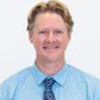
Tristan Winneker
Product Manager
Meissner Filtration Products
View More Details +
Cell & Gene Therapy Europe DIGITAL WEEK
DAY 1 –December 8, 2021
Cell & Gene Therapy Matures: Streamlining and Smoothing the Path to Commercialization
11am CET / 10am GMT / 5am EDT
The cell and gene therapy (CGT) industry is coming of age with multiple approved products in both AAV and gene-modified cell therapy. As the field continues to grow and mature, the advantages of integrated products and solutions for therapeutic developers is becoming apparent. Typically CGT program development requires managing multiple relationships and this presents challenges in aligning timelines. In this talk learn how Charles River's portfolio of products and services helps to enable our partners to streamline their path to commercialization.
Speaker:
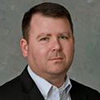
Matthew Hewitt, PhD
Senior Director, Scientific Services, Cell and Gene Therapy (CGT)
Charles River Laboratories
View More Details +
Adherent Cell Manufacturing & Process Development
12pm CET / 11am GMT / 6am EDT
Session Description Coming Soon!
Speaker:
Lior Raviv
Vice President Development & Operations
Pluristem Therapeutics, Israel
View More Details +
Addressing Viral Vector Genome Integrity by Long-Read Sequencing and Multiplex ddPCR
1pm CET / 12pm GMT / 7am EDT
The production of recombinant viral vectors is already well established, but still not at the optimal level. To maximize therapeutic effect, viral capsids should be packed by full-length vector genomes. Techniques to measure the vector genome titer are widely available, but because they target relatively small region of the genome, we do not obtain information about the integrity of the vector genome. This presentation will focus on two relatively new approaches to studying the integrity of vector genome. The first is the long-read sequencing approach and second is multiplex digital PCR. While the digital PCR based approach is still targeted, the sequencing is non-targeted, allowing for the identification of nucleic acid impurities. Preliminary results on the application of these approaches to AAV vectors will also be presented.
Speaker:
David Dobnik
Senior Research Associate
National Institute of Biology, Slovenia
View More Details +
DAY 2 –December 9, 2021
How to Scale up the production of therapeutic viral vectors for Gene Therapy applications
10am CET / 9am GMT / 4am EDT
How to Scale Up Viral Vector Production for Gene Therapy Applications
With multiple products approved and commercialized, gene therapy has now gone beyond proof of concept and entered mainstream healthcare. This success urgently requires work on manufacturing processes to ensure that gene therapies are widely available to all that need them. Pall’s Accelerator℠ process development services help our customers develop reproducible and scalable processes for viral vector manufacturing in order to meet clinical and commercial market demand in very short timelines. We will outline how we work with our customers in providing this service, and present case studies of Adeno-Associated Virus (AAV) and Lentivirus (LV) production using adherent and suspension cell culture. Furthermore, we will present how we can also help our customers build their production facility with virtual reality through our Accelerator Vision platform.
Speaker:
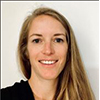
Emmanuelle Cameau
GT Strategic Technology Partnership Leader
Pall Corporation/ Pall France
View More Details +
Targeted Next-Generation Sequencing for Advanced Therapies
11am CET / 10am GMT / 5am EDT
Since the development of Sanger Sequencing in 1986, sequencing technologies have been revolutionizing biomedical research. Sequencing, mapping, and comparing the genomes of cells in healthy and diseased states can alter the way clinicians think about how to treat patients shifting from traditional medicine to a genome-based era of preventive and therapeutic decisions. There is also growing demand for using sequencing to evaluate the quality, safety, and efficacy of nucleic acid-based pharmaceutical products.
MiSeq next-generation sequencing (NGS) uses Illumina's sequencing by synthesis (SBS) technology to generate accurate sequencing data quickly and cost-effectively. As part of his presentation, Dr. Steven Parker from Intertek Pharmaceutical Services discusses the MiSeq sequencing workflow, the process of developing it for use in a regulatory research environment, and its potential customer applications.
Speaker:
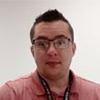
Dr. Steven Parker
NGS Scientist
Intertek Pharmaceutical Services
View More Details +
Accelerating Advances in Cell and Gene Therapy Production
1pm CET / 12pm GMT / 7am EDT
The field of cell and gene therapy is revolutionizing the way in which rare and previously untreatable genetic diseases are managed. Production processes for advanced therapies such as viral vectors, autologous and allogeneic cell therapies are still in the early years of development, with numerous advanced approaches under evaluation to improve yield, and help assure quality, function, and safety of these life-transforming medicines. During this session, we will review progress in several areas of advanced development and their impact on readiness for large scale manufacturing. We will, in part, focus on adeno-associated virus (AAV) with discussions on improving transfection efficiency, batch-feeding/perfusion, new transfection reagents, advances in recovery, cell line engineering including stable/packaging lines and clonal selection, single use technologies, and other topics.
Speaker:

George Buchman
Vice President, Pre-Clinical Service and Process Development
Catalent Cell & Gene Therapy
View More Details +
Establishing Analytical Methods to Support a Manufacturing Platform Process for AAV Gene Therapy Vectors
2pm CET / 13pm GMT / 8am EDT
Cell and Gene Therapies continue to offer innovative approaches to treat or prevent a myriad of diseases ranging from cancer to ultra-rare genetic disorders. In recent years, important advancements in the development of gene therapy products have been driven by the identification and understanding of new gene delivering vectors. Adeno-associated virus (AAV), a non-enveloped virus, has become the preferred DNA-delivering vector due its multiple features that make it an ideal platform for gene transfer. As with every novel therapeutic platform, the process development, manufacturing and analytical characterization of AAV-based gene therapy products present unique challenges. FUJIFILM Diosynth Biotechnologies (FDB) has developed an AAV manufacturing platform that offers clients a strategy to by-pass some of these challenges and move their novel products to the clinic in an accelerated fashion. This platform includes the use of a fully characterized suspension HEK293 cGMP cell line and Rep/Cap, Helper, and GOI (backbone) plasmids, both research and cGMP-grade, that allow for an accelerated process development stage.
Speaker:
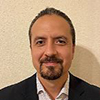
Emigdio Reyes, Ph.D.
Associate Principal Scientist in the Virology and Analytical Development Team
View More Details +



























